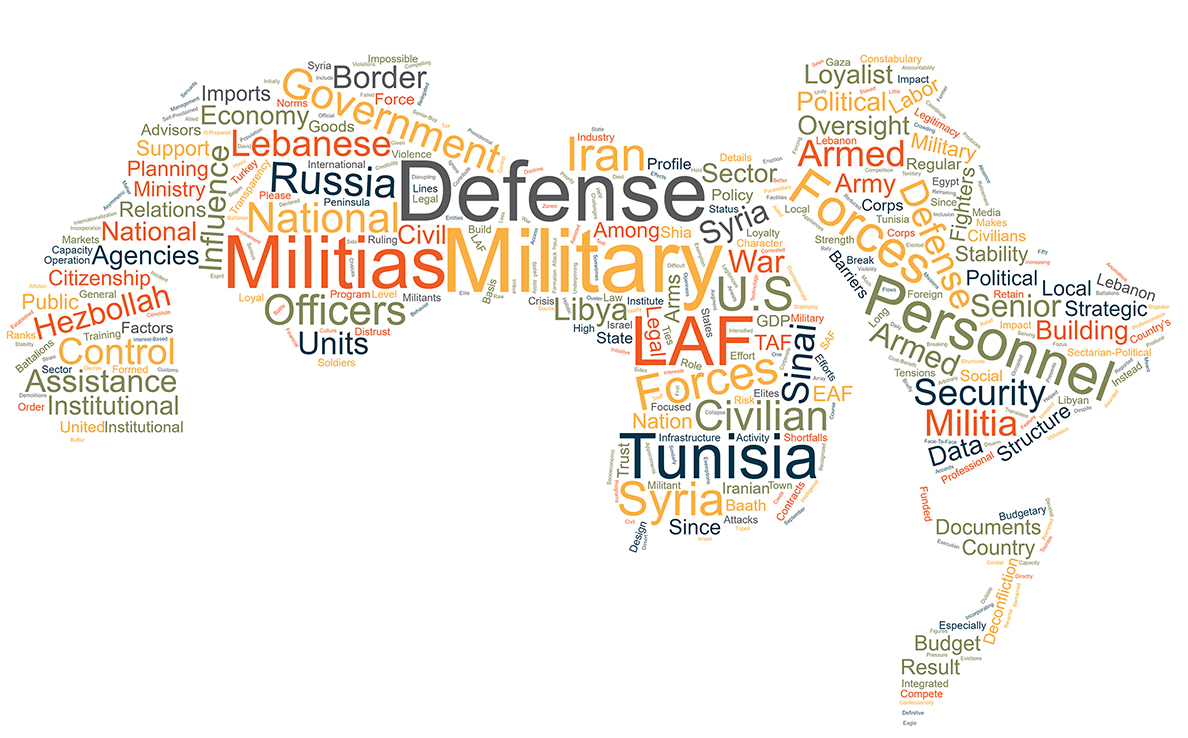Country Profiles
Country profiles analyze the outcomes of civil-military relations for institutional stability, the political system, nation building and citizenship, budget and economy, and national defense. They are currently available for Egypt, Lebanon, Syria, and Tunisia.
Country profiles are based on qualitative expert analysis. Statistical charts and explanatory graphs supplement the qualitative analysis. These guide readers to data of interest and offer insights on key legal documents and operational structures. Together with the Index, country profiles offer an overview of civil-military relations in a country and identify areas for policy intervention to improve civil-military relations.
Each country profile provides contextual data about a country’s civil-military relations, then assesses their outcomes in five spheres:
Political System
Nation Building and Citizenship
Budget and Economy
National Defense

Country profiles are based on qualitative expert analysis. Statistical charts and explanatory graphs supplement the qualitative analysis. These guide readers to data of interest and offer insights on key legal documents and operational structures. Together with the Index, country profiles offer an overview of civil-military relations in a country and identify areas for policy intervention to improve civil-military relations.
Each country profile provides contextual data about a country’s civil-military relations, then assesses their outcomes in five spheres:
Institutional Stability
The efficacy and integrity of state institutions, with a review of the powers and responsibilities of the armed forces and civilian political actors, command and control, impacts on civilian state agencies and policy areas, and the jurisdiction of military and civilian justice systems.
Political System
The predictability and stability of national politics, with a focus on the de facto role of the military in politics, military interactions with civilian governmental actors, and engagement with nongovernmental actors.
Nation Building and Citizenship
Integration or fragmentation, in particular the armed forces’ social or demographic profile and programs to support the civilian population, win hearts and minds, or influence perceptions.
Budget and Economy
Budgeting, public finances, and the national economy, including formal budgeting and accounting processes, income generation and commercial activities by the armed forces, and the net effects of defense spending.
National Defense
The impact of politicization, factionalism, or corruption on military capabilities and performance; the adequacy of civilian support; and the efficacy of utilizing resources and competences.




